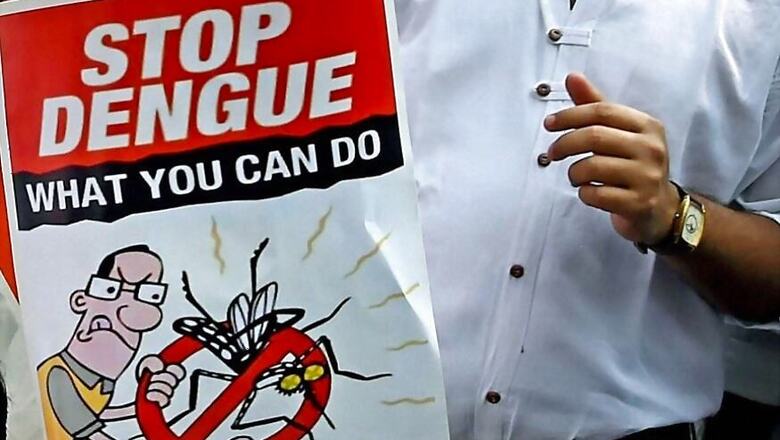
views
Peshawar health authorities on Friday confirmed that as many as 43 new cases of dengue fever have been detected during the last 24 hours across the Khyber Pakhtunkhwa. Dengue is a mosquito borne viral infection generally occurring during the monsoons. It causes a severe flu-like illness and, sometimes causing a potentially lethal complication called severe dengue.
The Relief Web reported that according to Dengue Response Unit (DRU), the number of dengue positive cases in Khyber Pakhtunkhwa has reached 6,189. The officials said that 14 new dengue cases were reported in Peshawar while 29 cases were detected from other areas in the province.
It was further reported as per DRU’s statement that 136 dengue patients were under treatment in various hospitals in the province. The authorities further said that 6,053 patients of mosquito-borne fever have been discharged from the hospitals after proper treatment. 310 new cases were reported in Karachi and other parts of Sindh, adding on to the plight of the citizens.
The report also said that according to Dengue Surveillance Cell (DSC), the count of dengue cases in Karachi in October had reached to 4294, while the mosquito-borne disease had claimed 23 lives. In Sindh overall count of the dengue patients had reached to 7808, health officials said in latest report.
The incidence of dengue has increased 30-fold over the last 50 years. Up to 50-100 million infections are now estimated to occur annually in over 100 endemic countries, putting almost half of the world’s population at risk.
There are some common prevention techniques to try and combat mosquitoes: remove standing water from our property, wear long-sleeved shirts and pants, use repellent, or simply avoid being outside during the hours when mosquitoes are most active. However, while suggestions like these do help, they never quite eliminate the threat of mosquito bites.




















Comments
0 comment